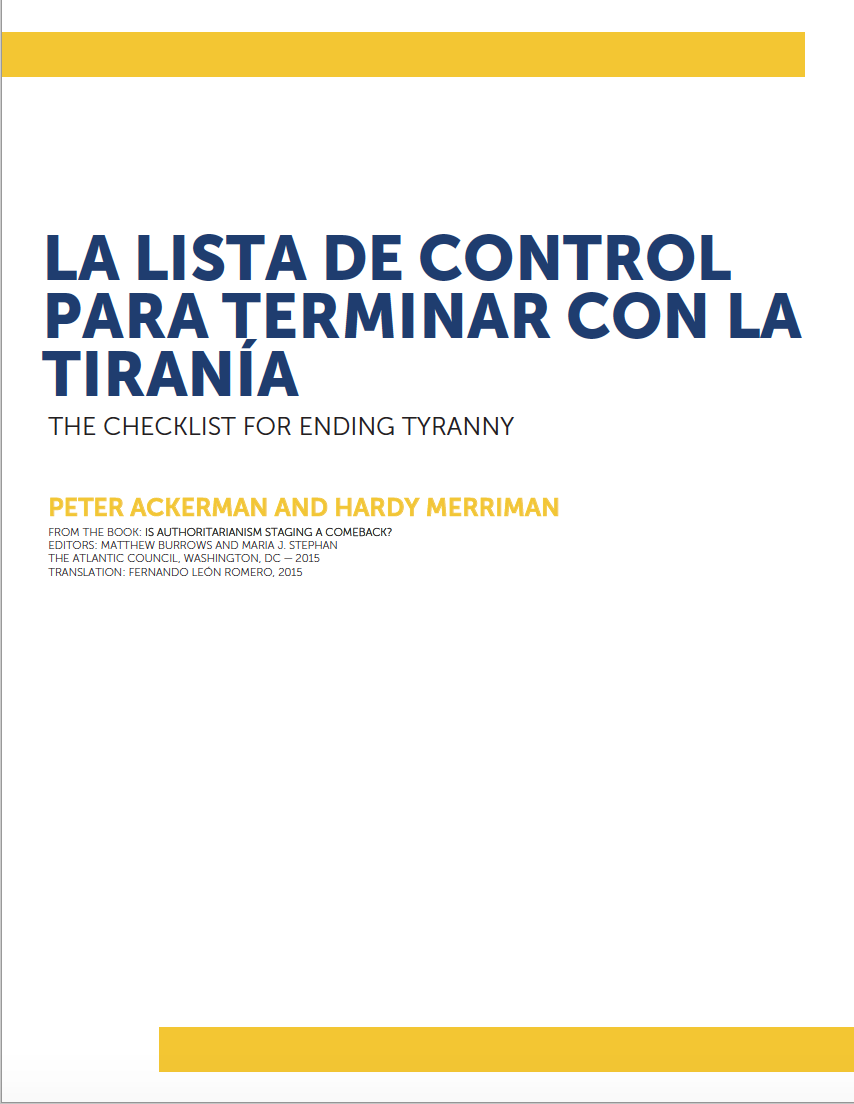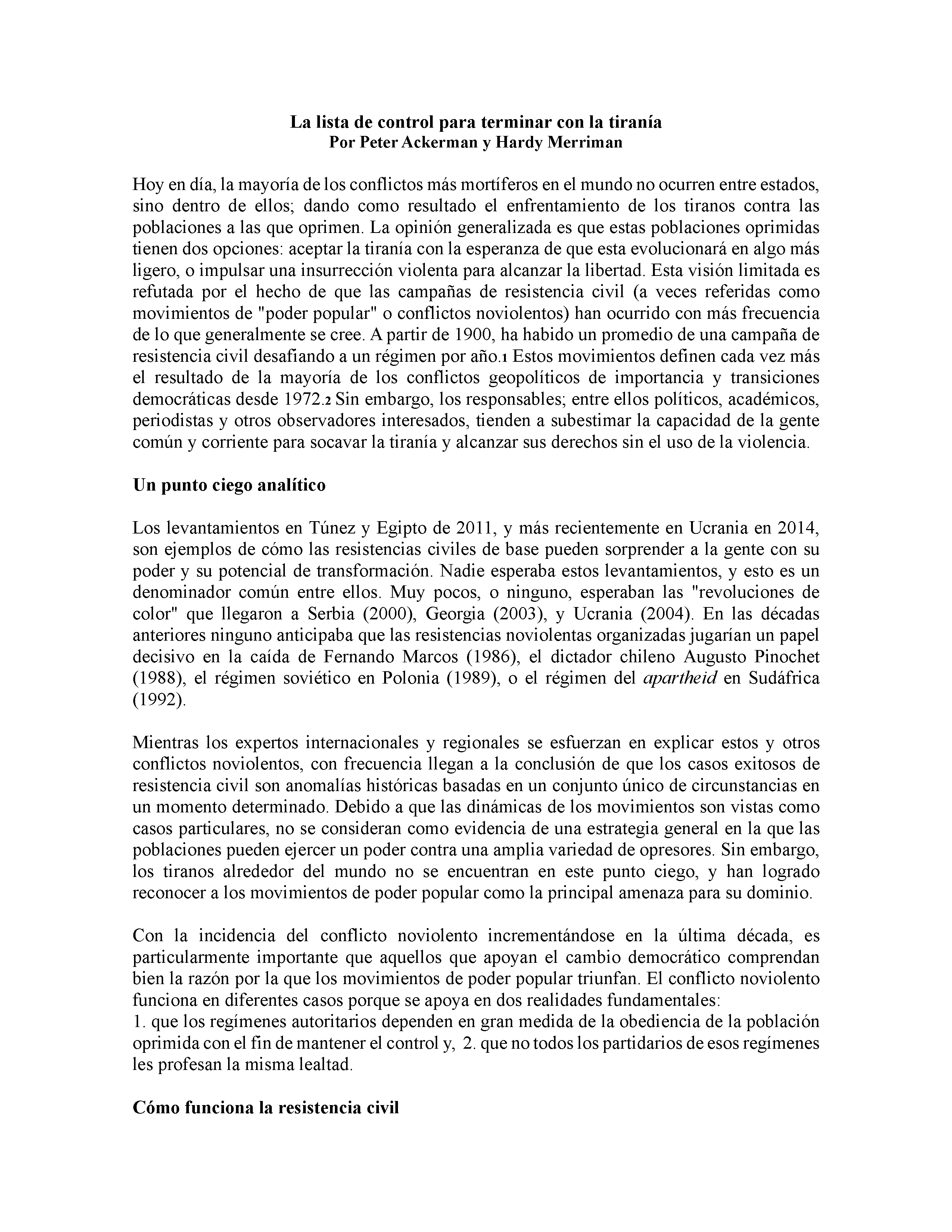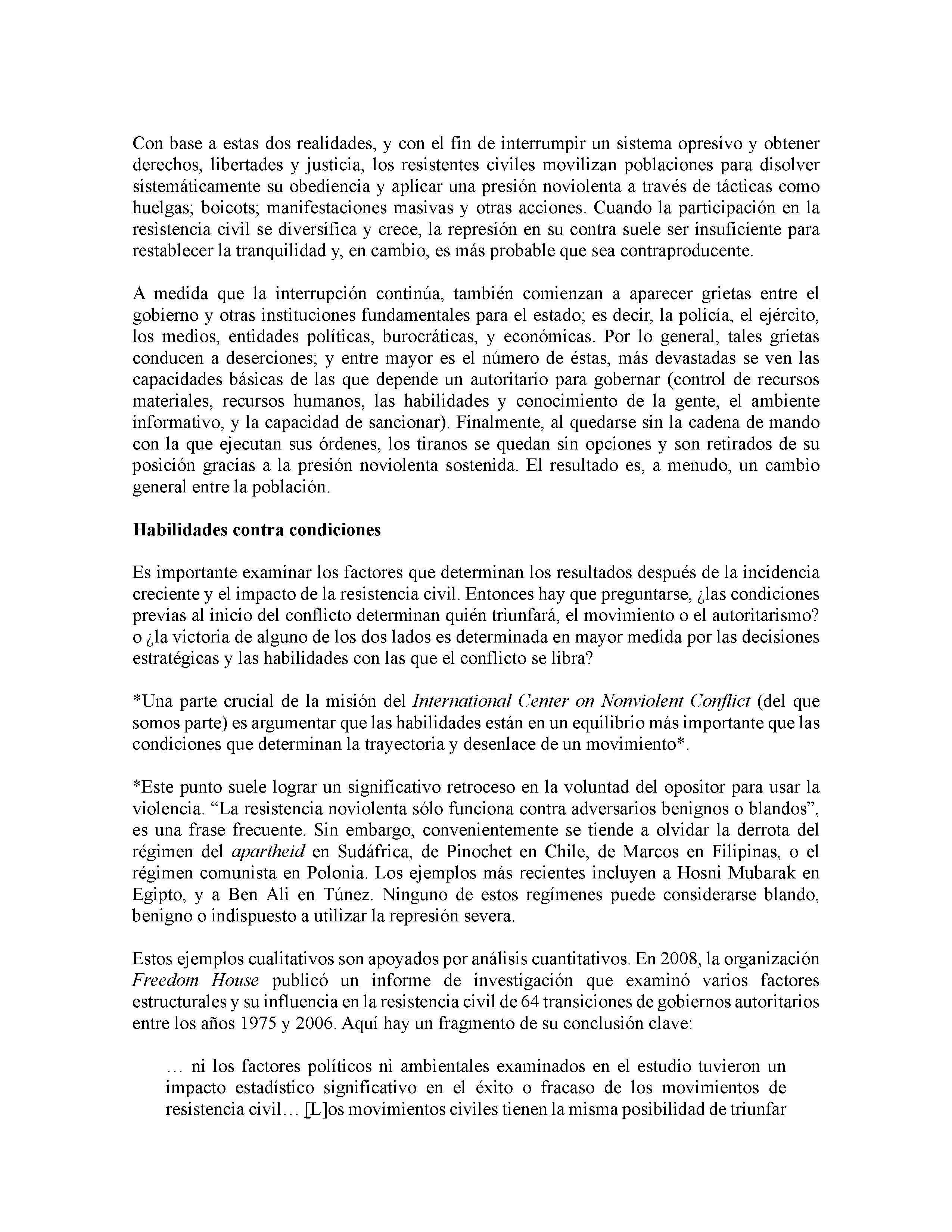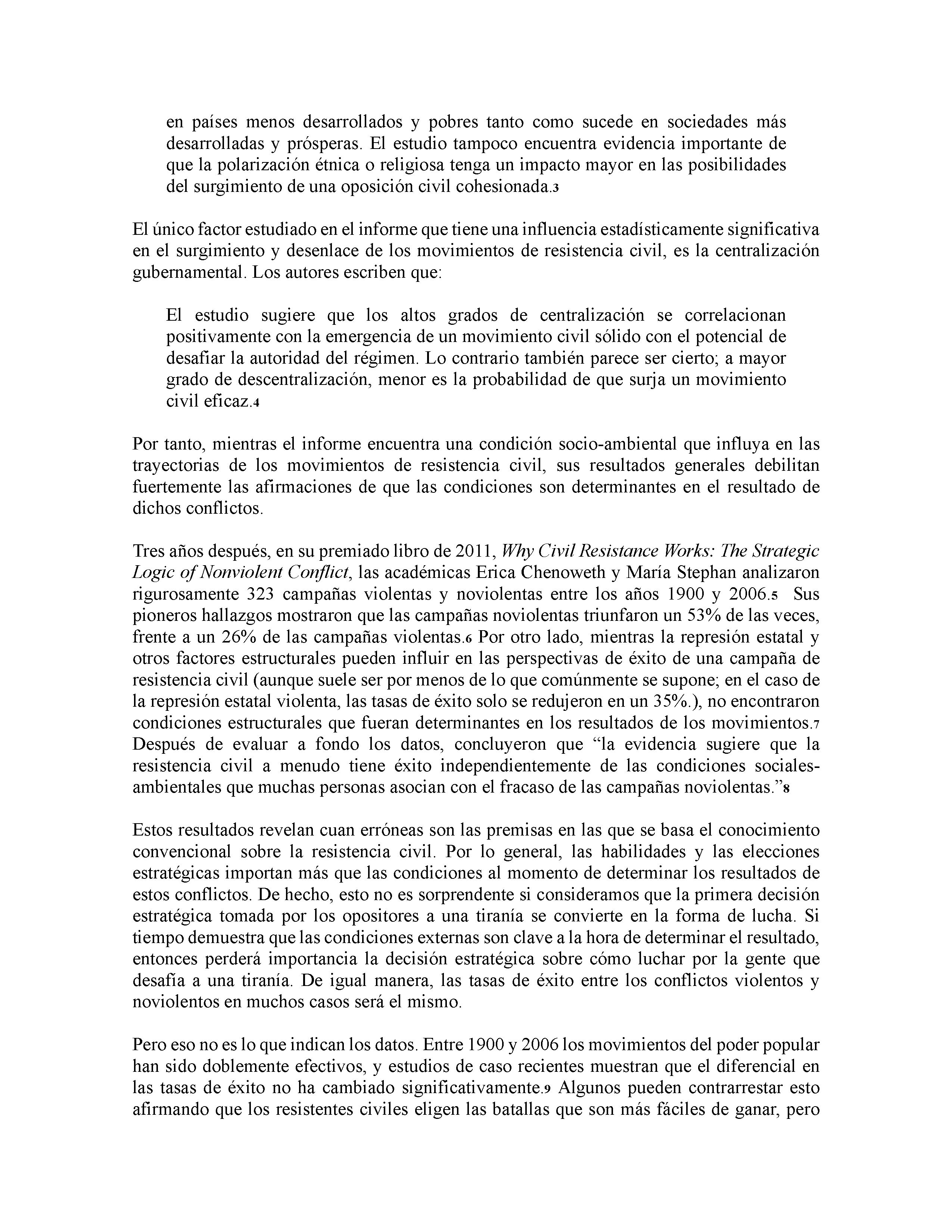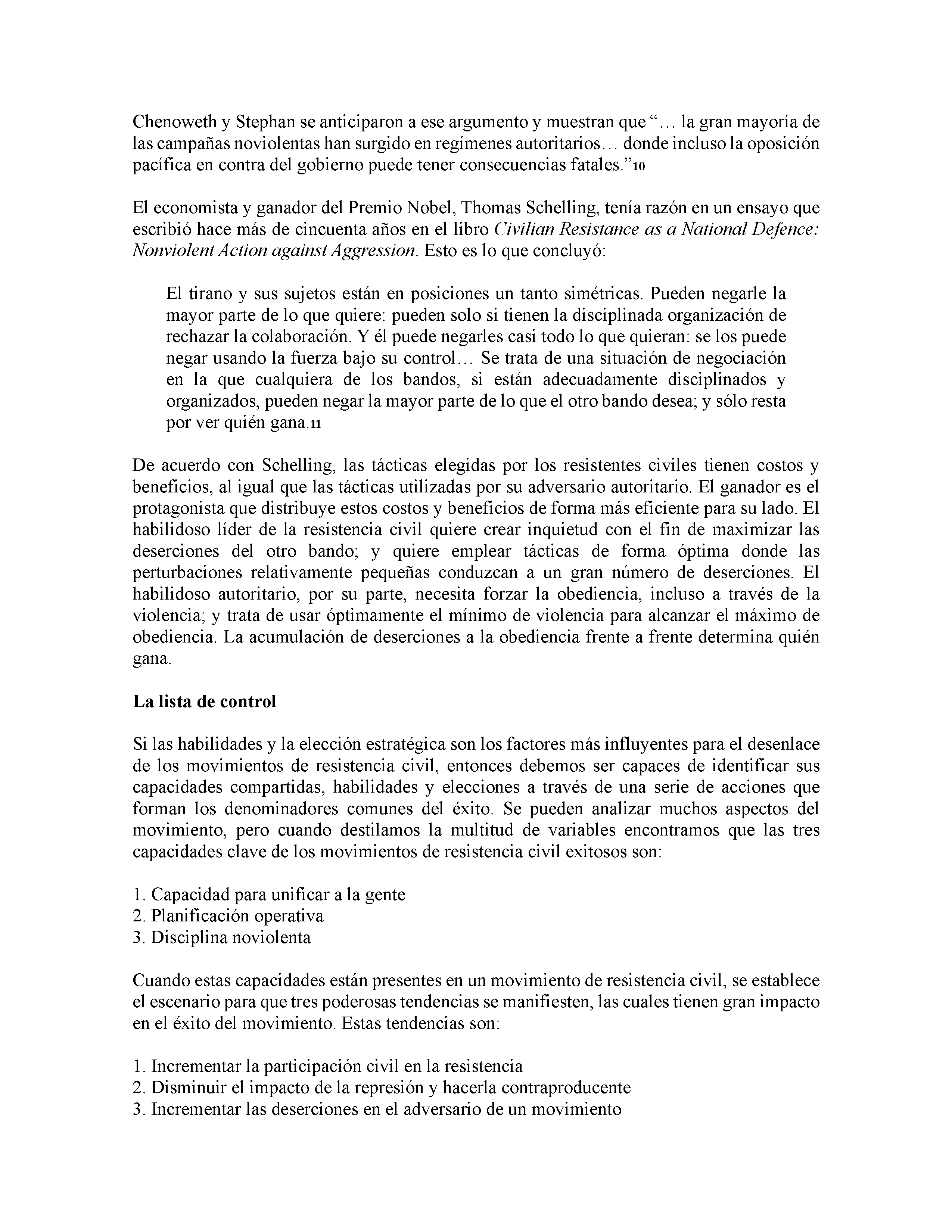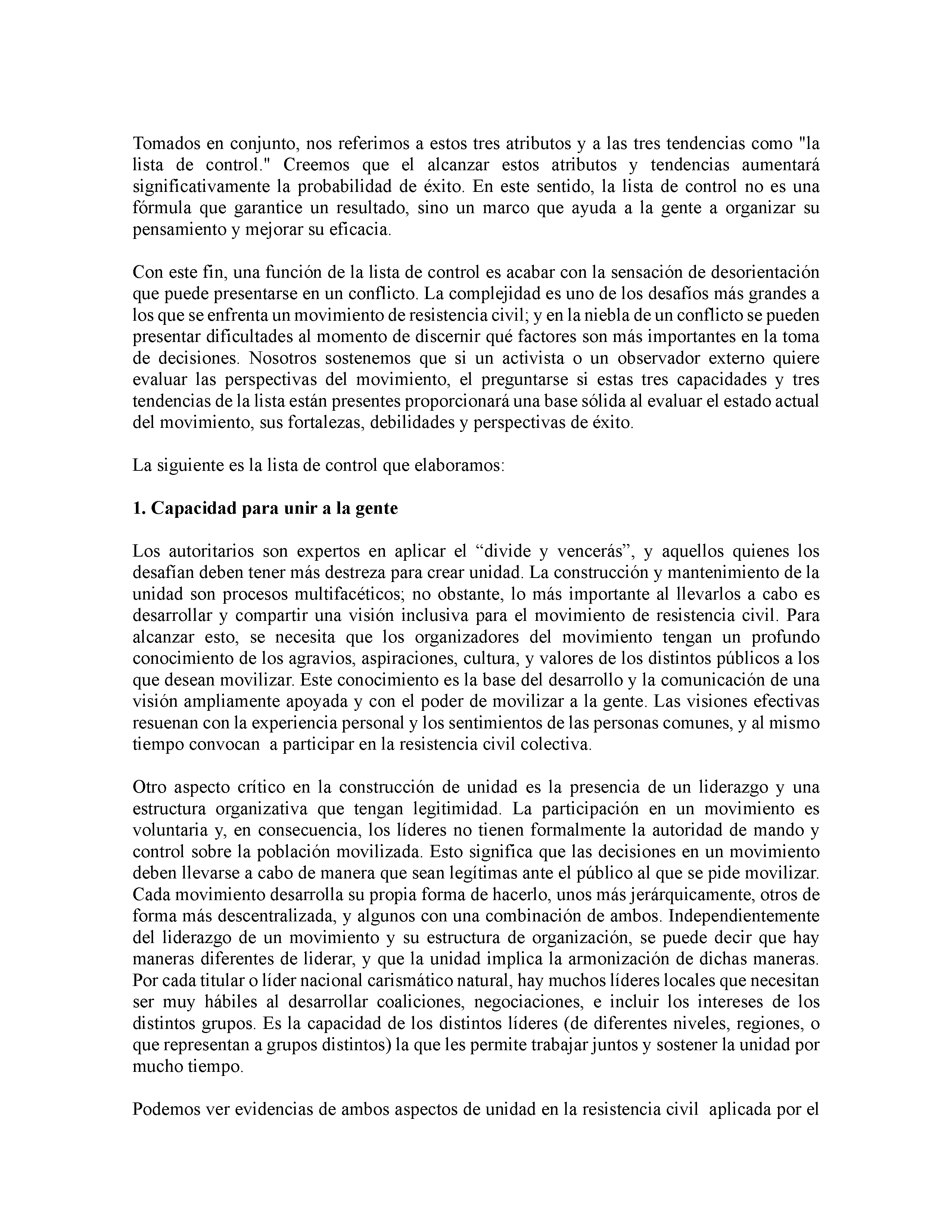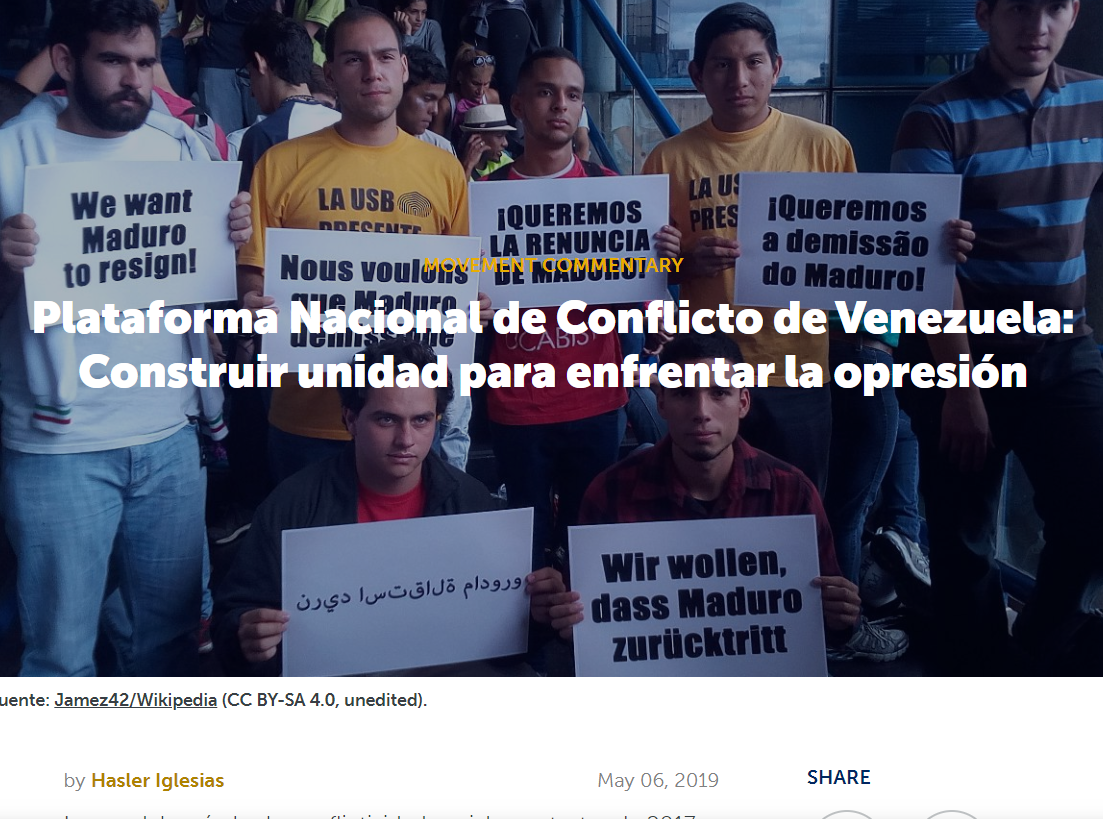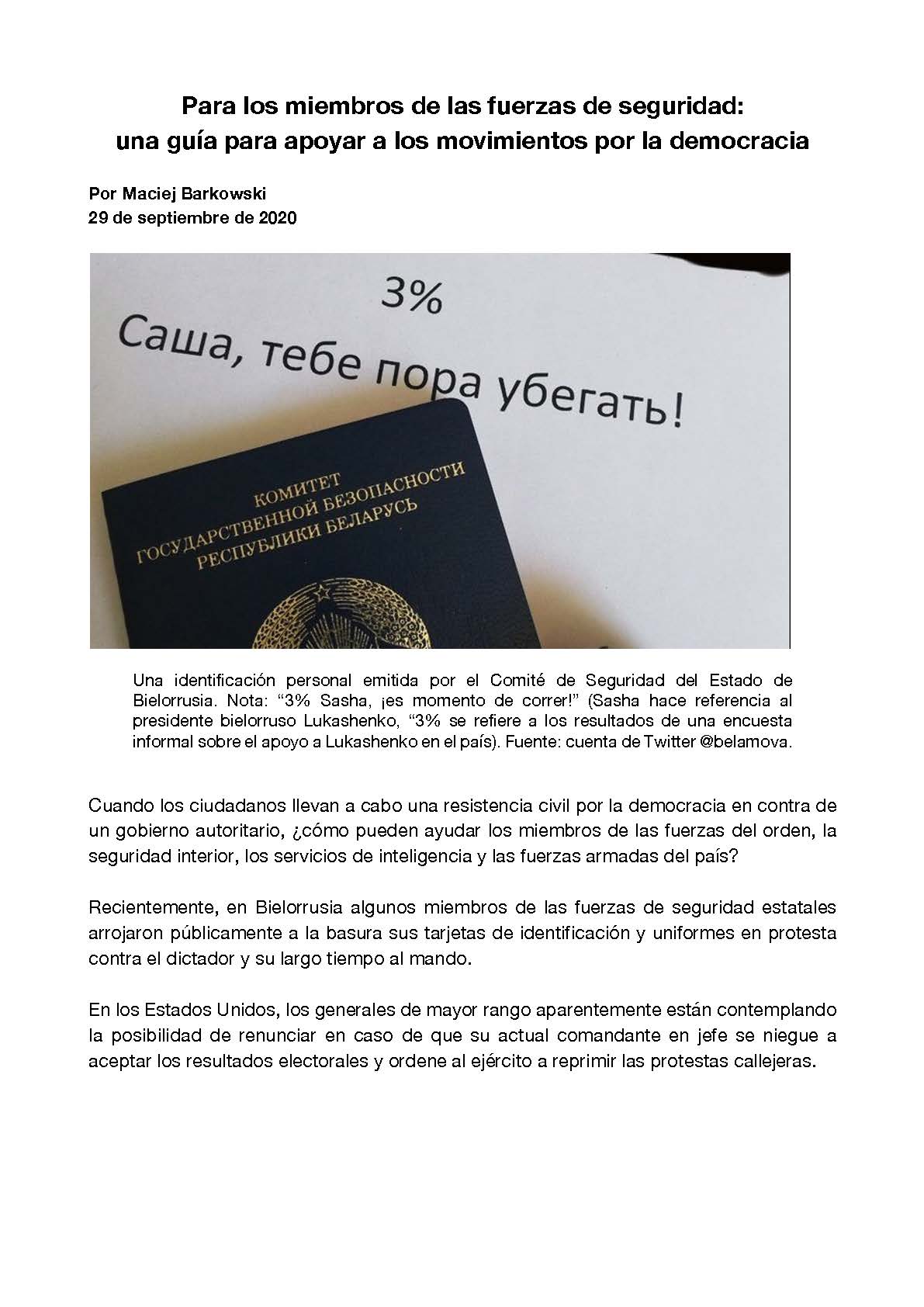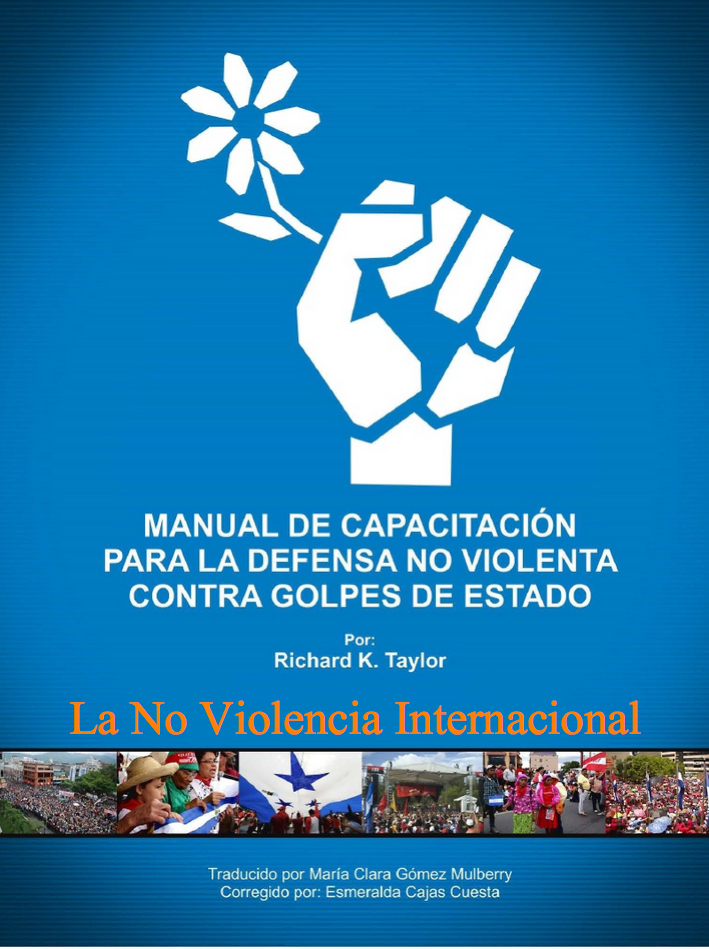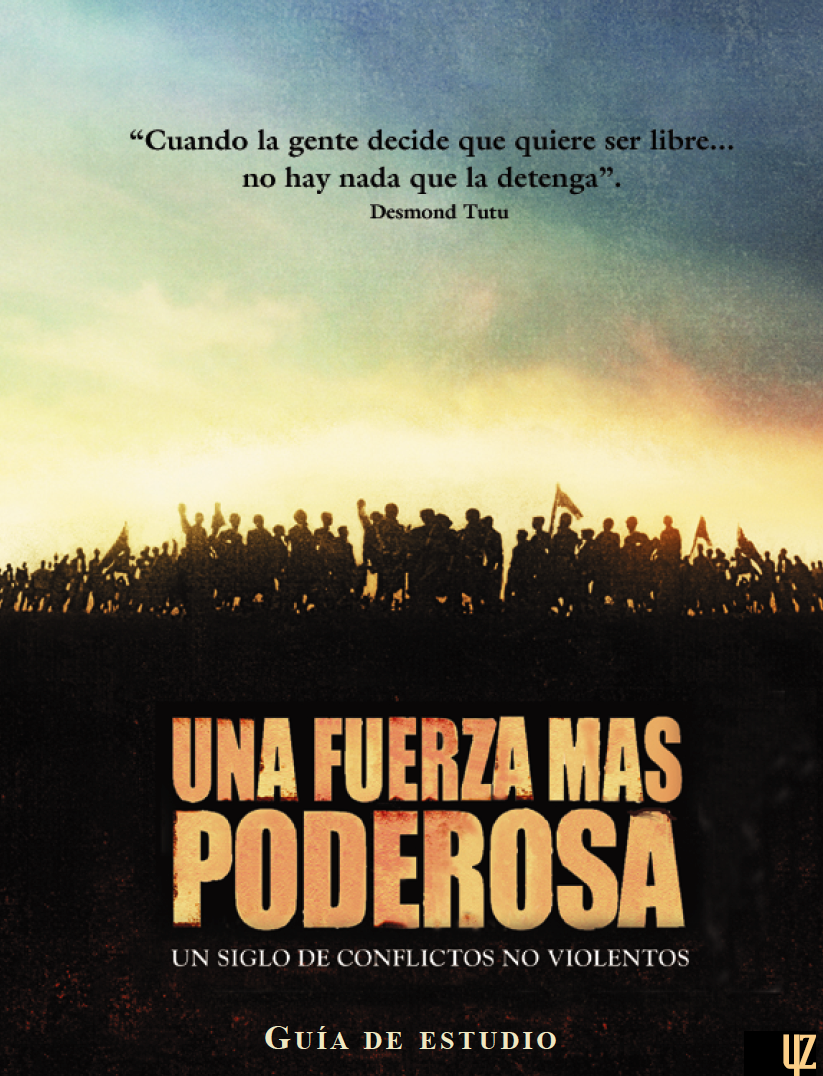La Lista de Control para Terminar con la Tiranía
Hoy en día, la mayoría de los conflictos más mortíferos en el mundo no ocurren entre estados, sino dentro de ellos; dando como resultado el enfrentamiento de los tiranos contra las poblaciones a las que oprimen. La opinión generalizada es que estas poblaciones oprimidas tienen dos opciones: aceptar la tiranía con la esperanza de que esta evolucionará en algo más ligero, o impulsar una insurrección violenta para alcanzar la libertad. Esta visión limitada es refutada por el hecho de que las campañas de resistencia civil (a veces referidas como movimientos de “poder popular” o conflictos noviolentos) han ocurrido con más frecuencia de lo que generalmente se cree. A partir de 1900, ha habido un promedio de una campaña de resistencia civil desafiando a un régimen por año.1 Estos movimientos definen cada vez más el resultado de la mayoría de los conflictos geopolíticos de importancia y transiciones democráticas desde 1972.2 Sin embargo, los responsables; entre ellos políticos, académicos, periodistas y otros observadores interesados, tienden a subestimar la capacidad de la gente común y corriente para socavar la tiranía y alcanzar sus derechos sin el uso de la violencia.
Editors: Mathew Burrows and Maria J. Stephan
The Atlantic Council, Washington, DC — 2015
Traducción: Fernando León Romero, 2015
